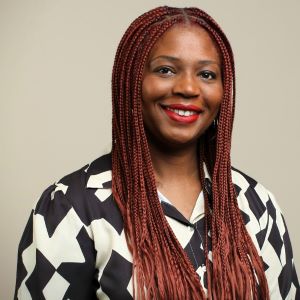Let’s Start with the Idea: We All Learn Differently
Setting the Stage for Action
In January 2023, 22 participants were invited to participate in the first-ever in-person Community of Action convening. Participants came from organizations across many different education sectors: from direct service providers and school and district innovators to edtech and non-profit personnel. The one commonality – each participant could bring a critical perspective on real-world problems in education and the tenacity and innovation to propose actionable solutions to come out of the convening.
EALA also invited five individuals with extensive experience and expertise in the field of education, philanthropy, and acceleration to provide guidance and coaching throughout the event.
After a day full of fast-moving and productive sessions, participants formed groups, cultivated their ideas, and prepared to present their proposals for participatory funding. In this unique participatory funding model, the members of the community of action would have the sole responsibility to decide which groups received funding, empowering them to take ownership of their ideas and bring them to fruition.
A Group Is Formed
After participants self-selected groups based on the four identified focus areas, seven participants gathered at the “Family and Community Engagement” corner of the room. This group of individuals passionately began introducing themselves. They came from organizations with backgrounds in parent advocacy, learner-centered products, and educator and community spaces. Some had firsthand, personal and professional experiences with special education and learning differences, for others, this was one of the first times they focused on this subgroup in education. Though the coaches and EALA team offered to split the group into smaller sections, no group member was willing. Each provided a unique perspective and each was willing to continue standing circled at the post-it board, discussing their experiences and connection to their Family and Community Engagement theme well after other groups had moved on to the next activity. Thus, though not yet named, the project team We All Learn Differently was formed.
Throughout their time at the Community of Action, We All Learn Differently showcased the true meaning of an even team. They did not yet choose a leader but instead organized themselves to each bring key perspectives to the table.
It was only later they named the I Am Able Foundation as the team leader to the project. Bari Levin, a retired middle school special education teacher, brought with her a background of 34 years of experience and is currently serving as the Executive Director of the I Am Able Foundation. Founder of the I Am Able Foundation, Aaron Wolf, was key to the group, not only due to his background in film and leadership in the foundation, but also due to his firsthand experiences growing up with ADHD and dyslexia.
Bridgette Leslie, co-founder and CEO of IEP&Me, previously worked as a special educator, focusing on creating inclusive classrooms, fostering self-awareness advocacy with her students, and triggering innovation in several school settings. She brought these experiences and her entrepreneurial and innovation skills previously accepted by other leading accelerator programs to support the group.
Jason Allen, currently the National Organizing Director of the National Parents Union, and a previous special education teacher, utilized his skills in communications, leadership, and advocacy. Often, you would spot Jason deep in conversation with others in his group, helping them to stay focused on the why and the how.
Max Hornick, a community education specialist for Disability Network Southwest Michigan, brought expertise in disability-related public policy issues and current events within the disability community. One of Max’s goals was to keep accessibility at the forefront of the project’s mission.
David Park, the Senior Vice President, Strategy Communications for Learning Heroes, supported the group in strategic planning and developmental thinking. With his background in communication and experience with parent engagement and policy, David was an asset to the team.
Zakiya Sackor, the Executive Director of Kindred Communities, brought with her experiences in leading educators, building teacher capacity, and ensuring equitable instruction across classrooms. Zakiya’s unique perspective in real-world implementation and educator buy-in was the final piece this team needed.
Defining a Problem of Practice
As a group, the We All Learn Differently team identified one key problem of practice to answer within their focus area: Family and Community Engagements. They asked, “How might we increase understanding and acceptance of disabilities and differences in order to improve community support for students and families?”
Max summarizes the formation of their team name and the ultimate consensus of the team when defining their selected problem, “We all felt like there isn’t [an] understanding of how people learn differently. For me, I was coming to this work with a disability history, disability rights, and disability justice perspective. And I think not everyone comes from that same background. A lot of what I was able to contribute was not only that [historical perspective] but coming from my own neurodiversity perspective as well.”
From there, with the help of their coach, the team named their goal: “Our goal is to promote community inclusion and empower students with disabilities and learning differences using the theme, ‘We All Learn Differently’. This work will benefit students with learning differences by allowing them to become self-confident in who they are. The ultimate goal is to have them embrace their learning difference and have them share their story and show the world, ’We all learn differently!’”
An Impactful Solution
The solution for the We All Learn Differently group was simple. First, they would utilize storytelling and media, something project members Aaron and Jason have deep experience with. Secondly, they would roll out a teacher toolkit, with the expertise of project members Zakiya, Brigette, and David. Finally, they would implement these items in pilot middle schools, with the help of Bari and Jason. Bari shared, “Middle school is a crucial age for students with learning differences to understand how they learn and to embrace their learning differences with their strengths.” Notation and celebration of learning differences were paramount to every member of the group but especially personal to Aaron and Max. The team decided to thus incorporate a celebration element into their school implementation ideas. What they found to be harder was a timeline, budget, and actionable implementation. Back and forth with their coach, the We All Learn Differently group used the full-distance wall in their corner of the room. They strategized with a visual representation of 3, 6, and 9-month goals.
Participatory Grant Selection
The next day, the We All Learn Differently team pitched their full idea to the rest of the Community of Action. “We will launch a unique website on our theme with a fun and engaging, professionally-produced launch video about our initiative, featuring a diverse group of people and a call to action. We will seek submissions of videos, essays, and artistic expressions of people with and without learning disabilities/differences sharing their stories about how they learn. The website will include a playbook for school communities to implement student storytelling projects and resources for learning more about disability history and advocacy. The site will become a source for educators, families, and students to break down stigmas and build community inclusion and understanding of learning disabilities and differences. Our 12-month campaign will wrap with community celebrations of ‘We All Learn Differently Day’ in the partnering schools and the goal of expanding to additional schools and communities around the country.”
The EALA Community of Action provides up to $150,000 in participatory grant funding for selected projects. It is up to the participants, and their groups’ project pitches, to determine who and how much to fund. We All Learn Differently was one of two projects selected for full funding by the rest of the Community of Action members.
What’s Next
The uniquely large and diverse We All Learn Differently team emerged from this Community of Action understanding that in order to engage families and communities, we must first understand and celebrate that we all learn differently.
Reflections
Big Takeaway:
Many members of the We All Learn Differently project remarked that, individually, they often felt challenged. But when they came together, and used their expertise as a collective, it was then that they were able to develop a collective vision. “There were times when we were all silent, we were sitting there scratching our heads and thinking. All right, wait a minute. Are we doing the right thing here? Is this right? You know, there were times that it was a little bit tense. But what was so cool was that we had people who were really experts in classroom learning. We had people who were experts in communications. We had people who were experts in social media. And so what ended up happening is we all had our own separate lane that came together, you know, and so that was really, really exciting.” said David Park within the podcast on the EALA Community of Action, All Families Can Be Learning Heroes.”
What we are still figuring out:
The We All Learn Differently project knows that an important step in this process is establishing key connections with schools and personnel in taking the We All Learn Differently first steps. The team looks forward to witnessing the schools, and the We All Learn Differently website, serve as places to build community, break down stigmas, and share understanding of learning disabilities and differences.
What I would tell other leaders/educators/students:
Regarding the sense of community that the EALA community of Action provides, Bridgette Leslie shared, “With this [Community of Action] there are so many partnership opportunities and amazing people doing great work, such as the I Am Able Foundation, that aligns well with our mutual goals of student advocacy and parent engagement. It was also interesting to learn some of the ins and outs of funding and grant requirements. It was cool to go through the short, kind of surprising process of ‘let’s do something together’.”
About The Author
Bari Levin is Executive Director at I am Able Foundation. Bari’s family, friends, and coworkers asked her what she was going to do when she retired from teaching special education students last year. She taught for 34 years. Her answer was very simple. She told them that she is going to continue working on her passion which is to make an impact with the learning difference community. Read More about Bari Levin…
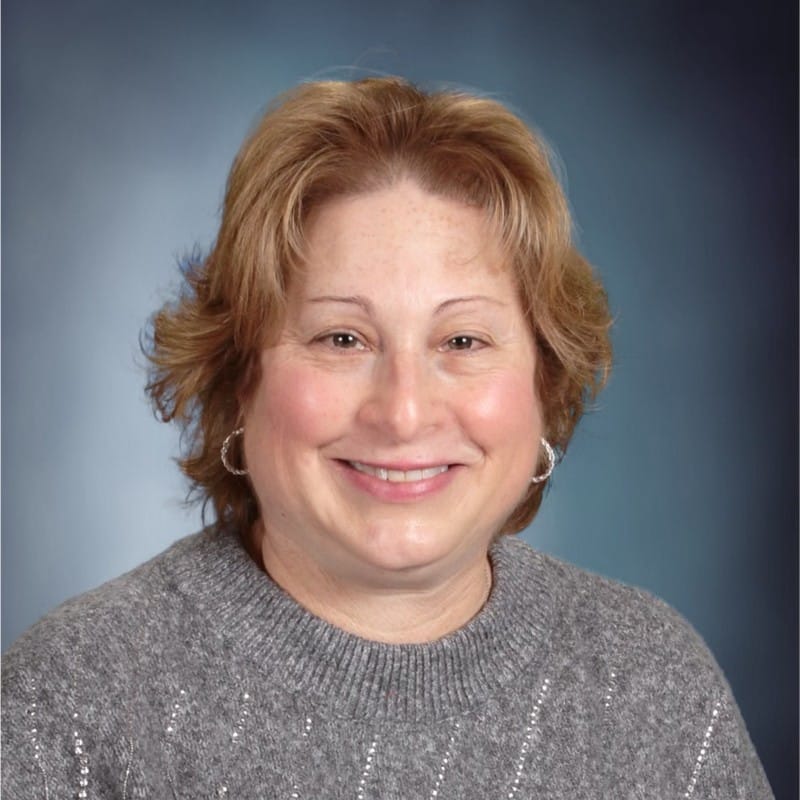
Aaron Wolf is the founder of I Am Able Foundation. His background is in filmmaking and acting and he went through a system that didn’t understand his way of learning with his invisible disabilities. His mission is to empower people through storytelling so that we can squash the stigmas that he lived through, hopefully for generations to come.
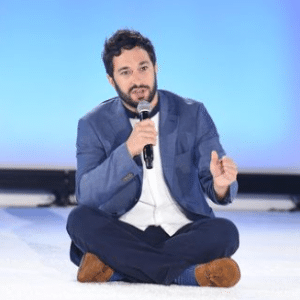
Bridgette Leslie is the Chief Executive Officer at IEP and Me. Bridgette entered the education world in 2011, first through volunteering and assisting teachers before earning her teaching credential in 2013. As a special educator that has worked across grade levels, demographics, and disabilities, Bridgette realized that the way schools have worked for students with different learning styles is just not working. Read more about Bridgette Leslie…
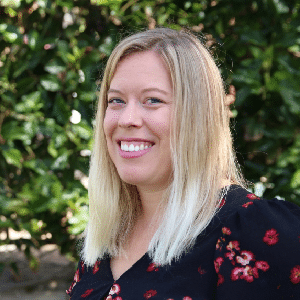
Jason B. Allen is the Organizing Director East Region at the National Parents Union. He is a 17-year educator currently teaching Special Education in Atlanta. He leads Lillie’s Foundation, serving Atlanta grandparents raising school-aged children. Additionally, he runs educational entities, including The Educators Voice blog, Speak Black Man podcast, and Students for Equity group.
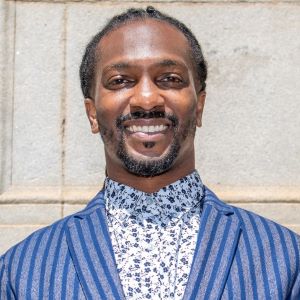
Max Hornick is a community education specialist at Disability Network Southwest Michigan. Max Hornick has worked at Disability Network Southwest Michigan for two years. They were hired as a Travel Trainer, which is a role that Max continues to fill, however they have expanded their duties considerably on our Community Education and Advocacy team. Max is a passionate advocate for disability rights and accessibility, so when the opportunity came along for them to enter the lengthy ADA Coordinator Training Certification Program (ACTCP), they were eager to jump in. Read more about Max Hornick…
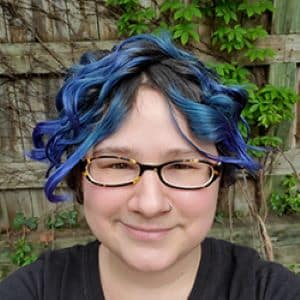
David Park is the Senior Vice President of Strategy and Communications at the National Parents Union. David has extensive experience in communications, strategic planning, community engagement, and development. Prior to Learning Heroes, David was Vice President of Mission Advancement at America’s Promise Alliance, where he helped develop and implement the GradNation campaign to increase the national high school graduation rate. Read more about David Park…
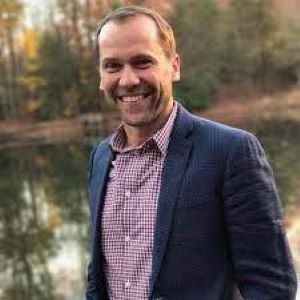
Zakiya Sackor is the Executive Director of Kindred Communities. For nearly 20 years, Zakiya (she/her) has been working to ensure that students of color and those living in poverty are in schools where they are affirmed and allowed to discover their gifts. Prior to joining Kindred, Zakiya served as Managing Director with Leading Educators where she partnered at the system level across Chicago and the greater Grand Rapids region to build teacher capacity in an effort to ensure equitable instruction across classrooms. Read more about Zakiya Sackor…
